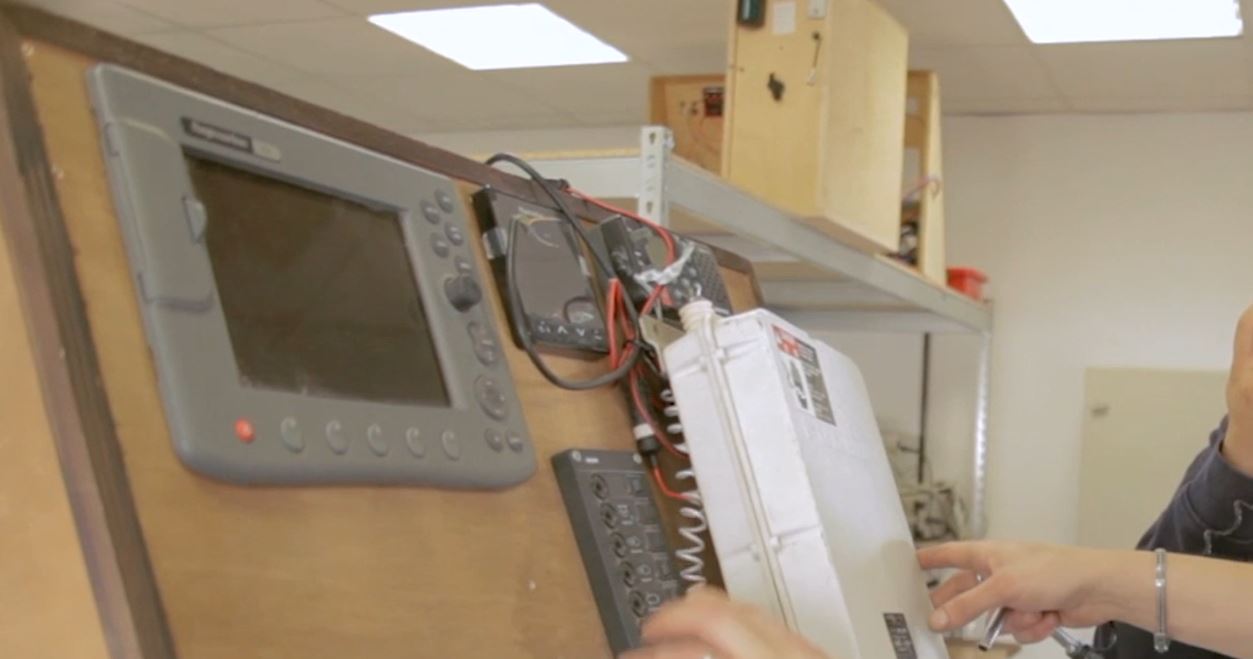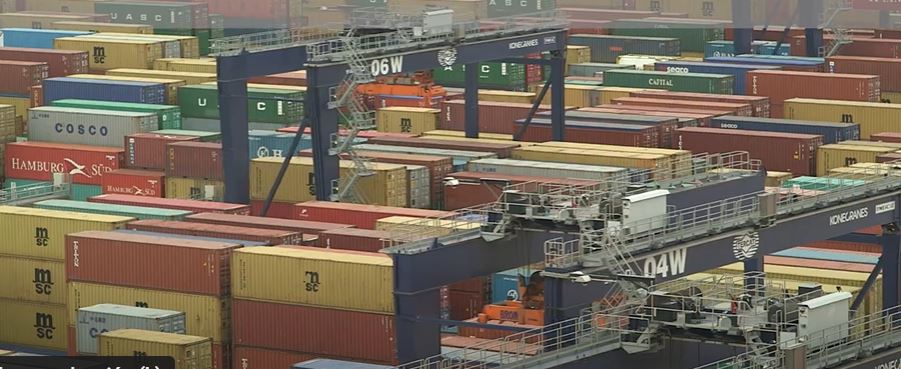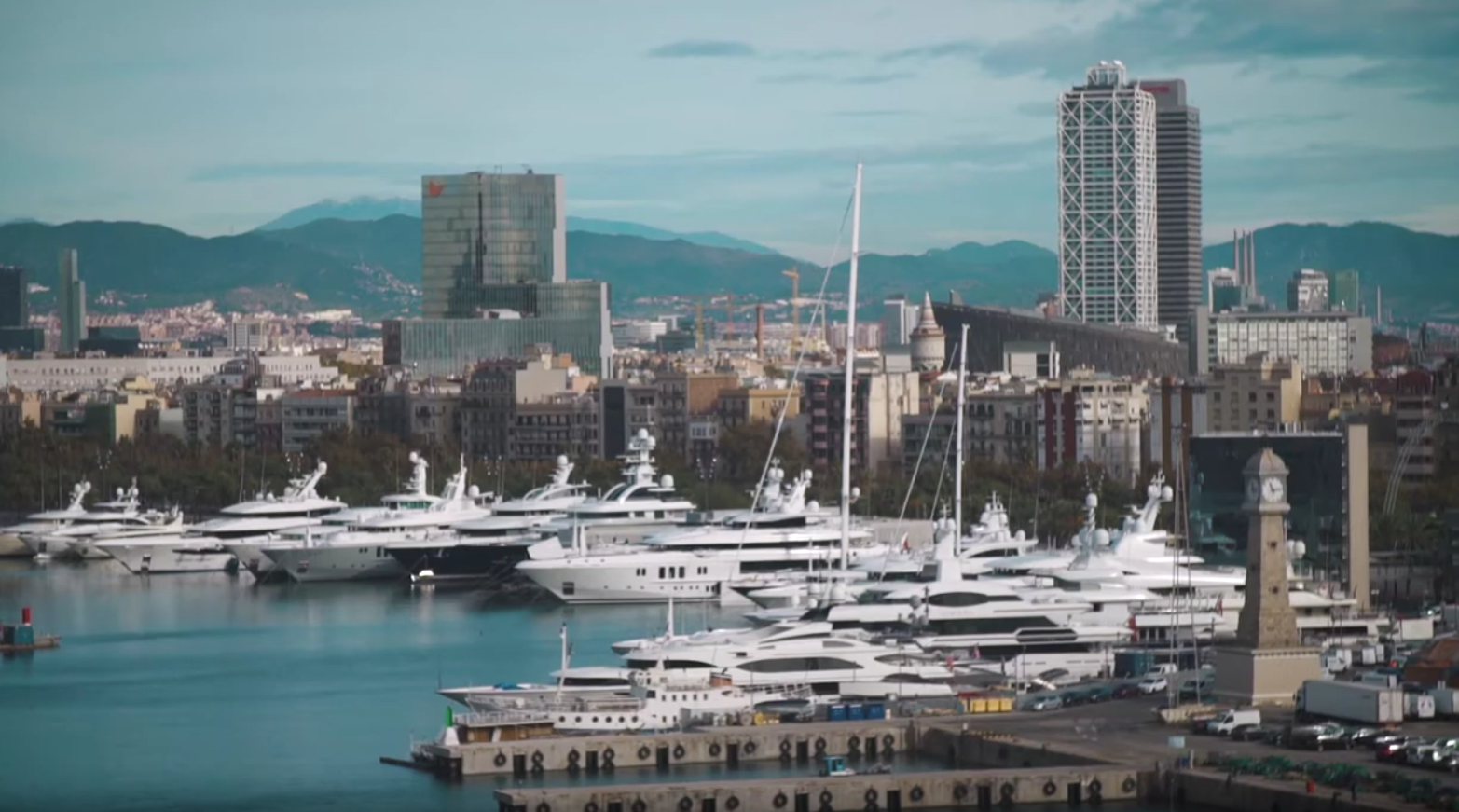We use our own and third-party cookies to improve your browsing experience and to offer you content and services of interest.
Continued browsing on your part shall imply full acceptance of our cookies policy.
Your consent preferences
The following panel allows you to customize your consent preferences for any tracking technology used to help us achieve the features and activities described below. For more information on how these trackers help us and how they work, please see the cookie policy. You can review and change your choices at any time.
We use our own and third-party cookies to improve your browsing experience and to offer you content and services of interest.
Continued browsing on your part shall imply full acceptance of our cookies policy.

Oceanographer
Description
These professionals perform studies on processes that occur both in the ocean and in aquatic ambiences along the coastline, with the aim of establishing strategies and activities that promote the conservation and sustainable use of natural aquatic resources, and providing responses based on scientific grounds to the problems presented by the exploitation and use of oceanic resources. Studies can be in four broad fields: physical, chemical, biological and geological oceanography.
Tasks
- To research the structure of marine ecosystems and how they work.
- To evaluate the dynamic processes of the marine environment such as tides, currents, sediments, waves, etc., and perform studies on the direction of currents using sea current maps.
- To study the chemical and biological components of seawater.
- To study the development of living beings in the ocean, their behaviour, their relationships with other species and with the marine environment.
- To characterise an oceanic zone by using monitoring programmes and marine probes, and manage a team to obtain water data and samples and sediments from the sea bottom.
- To analyse and process the information obtained from oceanic characterisations, and perform oceanographic monitoring and control.
- To make predictions on the behaviour of the sea in the short and medium term.
- To interpret tide and wave diagrams.
- To perform environmental impact studies on the marine ecosystem.
- To work on the planning, organisation and management of the coastline.
Training
Regulated training and graduates
- Grau: Biologia
- Grau: Biologia ambiental
- Grau: Bioquímica
- Grau: Bioquímica i biologia molecular
- Grau: Biotecnologia
- Grau: Cičncies ambientals
- Grau: Cičncies del mar
- Grau: Tecnologies marines
Complementary training
It is advisable to complement foundation studies with knowledge that is not part of the degree studied at university, for example: Microbiology. Physics and chemistry applied to the marine environment. Courses on methodologies for drawing up studies. To properly work at the bottom of the sea, it is advisable for oceanographers to take a diving course and hold certification.Other specific skills
Computer skills at the advanced user level: Office, Open Office, Internet browsers and Outlook. Advanced English, given that many scientific publications are written in this language and it is also very probable that a large part of the documentation drawn up by oceanographers will also have to be in English. Working knowledge of some Nordic language such as Danish, Norwegian or Swedish, given that there are many employment possibilities in these countries. Knowledge of ocean modelling parameters, software programs (Surfer, CAD, SIG, etc.) and handling oceanographic equipment.More occupations with this training | Look for more information on the degree of interest
Experience
Soft skills
Gain insight into soft skills | Access the dictionary of soft skills
Interests
Environment
People who work in this field focus their professional interests on the preservation, improvement or restoration of the environment (vegetation, fauna, flora) in both built-up areas and natural spaces. Some of the activities that represent this field are the detection, analysis and control of pollutants, the carrying out of measurements and tests in relation to climatic or environmental variables and the reduction of the harmful effects of human activity on the environment. The carrying out of these activities requires knowledge of the environment, for its planning and use, and of environmental regulations.
More occupations with your interests | Get to know your professional interests | Glossary of interests
Related occupations
Wage earner
Work hours
Full-time with flexible working hours.Salary
Wages are calculated according to demonstrable experience, the specific tasks done and the level of responsibility assumed, although gross annual wages range from 20.035 to 30.250euros. Median:24.618 euros annum gross.
Source: Report "Observatory of Jobs and Salaries of the Labour Market. Barcelona Activa", elaborated by ICSA Grupo. April 2015.Professional category
Technician
Highlights
Blue Economy
The Blue Economy encompassed all activities and economic sub-industries that operate from the ports of cities, a nerve centre that plays home to global flows of transport, goods and recreational activities that take place at sea. The maritime industry is a leader in innovation and generates high-quality employment that requires different professional qualifications, whether in the import and export sub-industry, the water sport and recreation sub-industry, the cruise sub-industry or the transport services sub-industry. The constant growth seen in this industry can be attributed to it clearly being an economic sector that creates employment.
Economia blava
07-2018 |  | Catalan | Beginner
| Catalan | Beginner
Documents (5 of 5)
Sector overview: Blue Economy
04-2024 |  | Catalan | Advanced
| Catalan | Advanced
This document shows data to have more information about the sector that will help you in your decisions regarding your training-work itinerary. This data is grouped into the following
Author: Barcelona Activa
Publishing date: 04-2024
Sector Report: Blue Economy
12-2023 |  | English | Beginner
| English | Beginner
Sectoral report showing the keys to this economic area as well as the main trends, both consolidated and emerging, in activities and professional profiles and reveals future scenarios.
Author: Barcelona Activa
Publishing date: 12-2023
Focus sectorial: Repair and Refit
08-2023 |  | English | Advanced
| English | Advanced
This report describes the activity of repair and refit in nautical. Ship maintenance and repair are key items in this sector and require specific professional profiles to perform this
Author: Barcelona Activa
Publishing date: 08-2023
Compendium of resources for job search in the Blue Economy sector
10-2022 |  | English | Beginner
| English | Beginner
Do you know where to find the offers that may interest you according to the sector in which you are looking for work? We put at your disposal the
Author: Barcelona Activa
Publishing date: 10-2022
Mapa Conceptual: Economia Blava
01-2020 |  | Catalan | Beginner
| Catalan | Beginner
En aquest mapa conceptual podrās consultar el contingut parlat a la jornada sectorial de l'Economia Blava, i a part, descobrir i navegar per documents relacionats amb aquest sector.
Author: Barcelona Activa
Publishing date: 01-2020
Related Videos (4 of 4)

Sectorial testimony: Xavier Cuerpo
Xavier Cuerpo, Head of Studies at the Institut Nāutic de Barcelona, explains what is the demand for professionals in the nautical sector and what skills are suitable for the nautical and marinised jobs, that is, works that are already in other sectors but applied to the blue economy.

Sectorial testimony Francesc Bonada: Economia Blava
Francesc Bonada, head of corporate development at the Port of Barcelona, tells us about the labor and organizational needs in the Port and describe the most demanded profiles in blue economy.

Jornada sectorial: Economia blava
Vídeo on trobarās un resum dels conceptes clau que van debatre els i les professionals i empreses participants en la jornada sectorial sobre l'impacte i potencial de l'āmbit de l'Economia Blava en el futur de l'ocupaciķ a la ciutat de Barcelona.

Jornada sectorial: Economia blava
Vídeo on trobarās un resum dels conceptes clau que van debatre professionals i empreses participants a la jornada sectorial sobre l'impacte i potencial de l'economia blava en el futur de l'ocupaciķ.
Useful links (5 of 18)
Blue economy sector Infographic: Evolution and tech change
23-04-2024 |  | English | Beginner
| English | Beginner
Blue economy sector has gone through different transformational processes and milestones in recent decades, which have impacted professionals and asked them for new skills and knowledge. Let us explain
Author: Barcelona Activa
Date of issue: 18-04-2024
https://treball.barcelonactiva.cat/infografies/en/timeline/blue-economy.html
Blue Economy Sector Infographic: sector's ecosystem
27-03-2023 |  | English | Beginner
| English | Beginner
Formative centres, reference clusters, guilds, colleges, city projects... All of this and much more in this infographic that will allow you to gain a thorough knowledge of the ecosystem
Author: Barcelona Activa
https://treball.barcelonactiva.cat/infografies/en/ecosistema/blue-economy.html
Estudi dels perfils professionals de la Comunitat Portuāria de Barcelona
25-01-2023 |  | Catalan | Beginner
| Catalan | Beginner
Actualitzaciķ de l'Estudi sobre els principals perfils professionals que requereixen les empreses de la Comunitat Portuāria de Barcelona. Elaborat per la Fundaciķ BCN Formaciķ Professional.
Date of issue: 25-01-2023
https://www.fundaciobcnfp.cat/wp-content/uploads/2022/11/Actualitzacio-perfills-PdB.pdf
Blue Economy Sector Infographic: From Training to occupation
18-01-2023 |  | English | Beginner
| English | Beginner
In this infographic you will be able to consult which of the formations will allow you to access the Blue Ecomomy sector, some of the most outstanding jobs and
Author: Barcelona Activa
Date of issue: 07-12-2022
https://treball.barcelonactiva.cat/infografies/en/sector/blue-economy.html
Estudi dels perfils professionals de la Comunitat Portuāria de Barcelona
05-01-2021 |  | Catalan | Advanced
| Catalan | Advanced
Estudi sobre els principals perfils professionals que requereixen les empreses de la Comunitat Portuāria de Barcelona. Elaborat per la Fundaciķ BCN Formaciķ Professional.
Date of issue: 13-11-2020
Display Industry's jobs:
Blue Economy
Recreational Boat Navigation
- Marina
- Recreational boat navigation repair and maintenance
- Naval engineer
- Technician specialist in nautical carpentry
- Nautical maintenance technician
- Technician specialized in nautical painting
- Technician specialized in nautical comfort systems
- Technician specialist in electrical and nautical communication systems
- Technician specialized in metalwork and nautical welding
- Technician specialist in nautical engines
- Nautical activities support
Fishing and Aquaculture
Maritime Transport
- Port services
- Vessel traffic agent
- Shipping line manager
- Oceanographer
- Maritime safety and quality inspector
- Operations and Port Services Engineer
- Internal port traffic master
- Navigation technician in computer science and telecomunications
- Marine scientist / technologist
- Mooring master
- Merchant or passenger ship consignee technician
- Container terminals for loading and unloading operations
- Passenger and freight transport










 Open
Open


